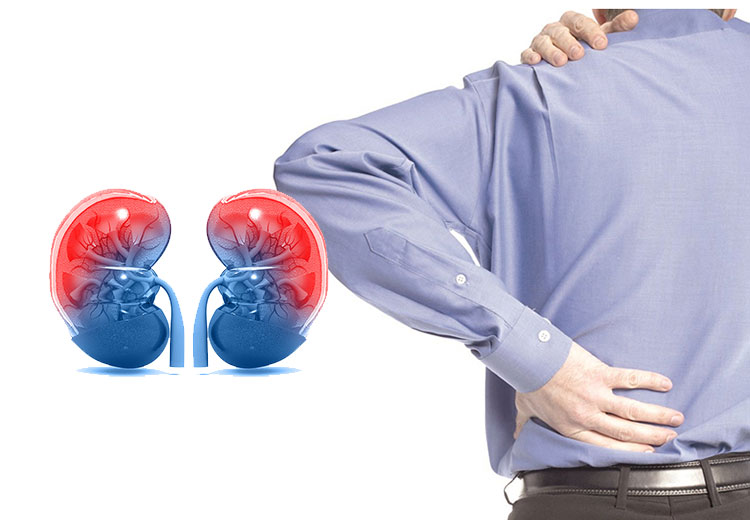The kidneys are bean-shaped organs of dark red color at waist level on the good side of the spine. The kidneys make up urine by cleaning the blood through millions of microscopic filters called nephrons. Urine then comes from the kidneys into the bladder. The kidneys undertake the following tasks in order to regulate body functions;
In order to regulate body fluids, they take it from the renal arteries and transmit it to the general circulation through the renal veins to clean the blood. The structure and volume balance of body fluids discard waste products in the form of urine.
Waste products are formed by the burning of proteins as a result of activities in food and normal muscles. Nov. These substances are then excreted in the urine.
Healthy kidneys in the body secrete an important chemical substance called hormones.
It helps to control the production of blood cells.
It helps to strengthen the bones.
What are the Causes of Kidney Failure?
Kidney failure can have many causes. These can be listed as inflammation of some parts of the kidney, damage to the parts of the kidney that act as filters, inflammation, diabetes, kidney cysts, high blood pressure, decreased blood flow caused by damage to some vessels leading to the kidneys.
What are the Symptoms of Kidney Failure?
Kidney failure manifests itself in two ways, acute and chronic. Acute renal failure is a kidney failure in which the kidneys Decontaminate their functions for a very short period of time and return is possible. If timely, early diagnosis and treatment are performed, the person’s kidneys can continue to function normally. In chronic kidney failure, the condition becomes more serious. Signs of kidney failure; a decrease in the daily amount of urine or excessive urination, shortness of breath, palpitations, yellowish brown skin discoloration, loss of appetite, weakness, drinking a lot of water, blood pressure increases, significant water accumulation in the eyelids, feet, painful urine, cloudy, bloody urine, getting up to multiple toilets at night, blurred consciousness, remittance, night urinary incontinence in children and developmental delays can be listed as.
How is the Treatment of Kidney Failure Performed?
A phenomenon we call kidney failure is a condition in which the kidneys cannot perform the task of cleaning the blood in any way. The level of harmful wastes in the blood increases. Blood salts go beyond normal limits. If the blood potassium level rises too much above normal, a life-threatening event may occur.
Previously, there could be vital losses from kidney failure. But today, with advancing medicine, kidney failure can be controlled and treated. For this reason, it is necessary not to be afraid of kidney failure today, but to act cautiously. If kidney failure is in its final stages, treatment with medication alone is not possible. Additional treatment methods should be applied here to support the kidney. October 27, 2019.
These methods are;
Dialysis
Kidney transplantation
is in the form.
Kidney transplantation is the cleaning of harmful wastes in the body by inserting a new kidney taken from another person into the patient. A kidney transplant can be obtained from a living donor, or it can also be obtained from a cadaver, that is, from a deceased person.
Dialysis can be applied in two ways
Hemodialysis is a form of treatment in which the patient’s blood is filtered through a special filter via a machine, harmful substances are cleaned and the cleaned blood is returned to the patient.
Peritoneal (Abdominal) Dialysis is a method in which the patient’s own abdominal membrane functions as a filter to clean the blood from harmful wastes. The form of dialysis in which a person’s own abdominal membrane is used is called peritoneal dialysis, that is, abdominal dialysis.
The Competence of the Specialist Doctor and Equipment is Important
Whether it is kidney transplantation, drug treatment, or dialysis, it is important to perform this operation in a hospital where there is a specialist doctor and the necessary equipment in the field. For this reason, the hospital, health center where the kidney transplant or treatment will be performed, as well as the physician and specialist staff at the beginning of the operation will be important.

